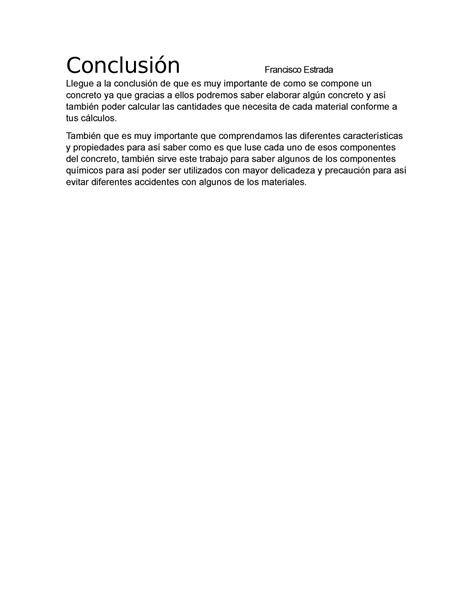Intro
Unlock the benefits of a whole food plant-based diet, rich in nutrients, fiber, and antioxidants, promoting weight loss, improved heart health, and reduced chronic disease risk with a balanced vegan lifestyle.
The concept of a whole food plant-based diet has been gaining significant attention in recent years, and for good reason. This dietary approach focuses on consuming whole, minimally processed plant foods, excluding animal products and added sugars. The benefits of adopting a whole food plant-based diet are numerous, ranging from improved overall health to reduced environmental impact. As more people become aware of the importance of nutrition in maintaining well-being, the interest in this diet has grown exponentially. Whether you're looking to improve your health, support sustainable living, or simply explore a new way of eating, understanding the benefits of a whole food plant-based diet is essential.
Adopting a whole food plant-based diet can have a transformative impact on one's health. By focusing on whole foods like fruits, vegetables, whole grains, and legumes, individuals can significantly reduce their risk of chronic diseases such as heart disease, diabetes, and certain types of cancer. The high fiber and nutrient content in plant-based foods support healthy digestion, boost the immune system, and provide the body with the necessary building blocks for optimal functioning. Moreover, a diet rich in whole plant foods tends to be low in saturated fats and high in healthy fats, which can lead to improved weight management and reduced inflammation.
The importance of nutrition in preventing and managing diseases cannot be overstated. With the rising rates of obesity, diabetes, and other diet-related health issues, it's clear that a significant shift in dietary habits is needed. A whole food plant-based diet offers a sustainable and effective solution, providing individuals with the tools they need to take control of their health. By making informed food choices, people can reduce their reliance on pharmaceuticals and medical interventions, instead focusing on prevention and holistic wellness. This approach not only benefits the individual but also contributes to a broader cultural shift towards valuing health, sustainability, and compassion.
Introduction to Whole Food Plant-Based Diet

Key Components of a Whole Food Plant-Based Diet
A well-planned whole food plant-based diet is rich in essential nutrients, including protein, iron, calcium, and vitamin B12. Legumes, such as beans, lentils, and peas, are excellent sources of protein and fiber. Dark leafy greens like kale and spinach are rich in iron and calcium, while nuts and seeds provide healthy fats and vitamin B12. Whole grains, including brown rice, quinoa, and whole wheat, offer complex carbohydrates, fiber, and a range of vitamins and minerals.Health Benefits of a Whole Food Plant-Based Diet

Reducing the Risk of Chronic Diseases
One of the most significant advantages of a whole food plant-based diet is its potential to reduce the risk of chronic diseases. Heart disease, for example, is often linked to high levels of saturated fat and cholesterol in the diet. By avoiding animal products and focusing on plant-based sources of fat, individuals can lower their cholesterol levels and reduce their risk of heart disease. Similarly, a diet rich in fiber and antioxidants can help regulate blood sugar levels, reducing the risk of type 2 diabetes.Nutritional Considerations

Addressing Common Nutrient Deficiencies
To avoid nutrient deficiencies on a whole food plant-based diet, it's crucial to consume a variety of foods and consider supplementation when necessary. Vitamin B12, for example, can be obtained through fortified plant-based milk and cereals or through supplements. Iron deficiency can be addressed by consuming iron-rich plant foods, such as beans and dark leafy greens, and vitamin C, which enhances iron absorption. By being aware of the potential for nutrient deficiencies and taking steps to address them, individuals can ensure they are getting all the necessary nutrients on a whole food plant-based diet.Environmental Impact of a Whole Food Plant-Based Diet

Sustainable Food Systems
The adoption of whole food plant-based diets can contribute to the development of more sustainable food systems. By supporting local, organic farming practices, individuals can help promote environmentally friendly agriculture and reduce the demand for resource-intensive animal products. This shift towards sustainable food systems can have far-reaching benefits, from preserving natural resources to supporting rural communities and promoting food security.Practical Tips for Adopting a Whole Food Plant-Based Diet

Meal Planning and Preparation
Meal planning and preparation are essential components of a successful whole food plant-based diet. By planning meals in advance, individuals can ensure they are getting a balanced intake of nutrients and reduce food waste. Preparing meals in bulk, such as cooking large batches of grains or legumes, can save time and make healthy eating more convenient. Exploring different cuisines and recipes can also help keep the diet interesting and prevent boredom.Common Challenges and Solutions

Addressing Social and Cultural Pressures
One of the most significant challenges of adopting a whole food plant-based diet is navigating social and cultural pressures. This can involve communicating with family and friends about dietary choices, finding plant-based options in social settings, and dealing with criticism or skepticism from others. By being confident in one's choices and seeking out supportive communities, individuals can build resilience and navigate these challenges with ease.Conclusion and Next Steps

As you consider the benefits of a whole food plant-based diet, we invite you to share your thoughts, experiences, and questions in the comments below. Whether you're just starting to explore plant-based eating or are a seasoned advocate, your insights and perspectives are valuable contributions to the conversation. Together, we can create a community that supports and inspires one another to live healthier, more sustainable lives.
What are the key components of a whole food plant-based diet?
+A whole food plant-based diet focuses on whole, unprocessed foods, including fruits, vegetables, whole grains, legumes, nuts, and seeds. These foods provide all the necessary nutrients for optimal health, excluding animal products and added sugars.
How can I ensure I'm getting enough protein on a whole food plant-based diet?
+Legumes, such as beans, lentils, and peas, are excellent sources of protein. Whole grains, nuts, and seeds also provide protein, making it easy to meet daily protein needs on a well-planned whole food plant-based diet.
What are some common challenges of adopting a whole food plant-based diet, and how can I overcome them?
+Common challenges include social and cultural pressures, concerns about nutrient deficiencies, and the perceived high cost of plant-based foods. By seeking out supportive communities, planning meals in advance, and exploring affordable plant-based options, individuals can overcome these challenges and thrive on a whole food plant-based diet.
How can I get started with a whole food plant-based diet, and what resources are available to support me?
+Starting with small changes, such as incorporating more plant-based meals into your diet, can make the transition easier. Exploring online resources, cookbooks, and connecting with like-minded individuals can provide valuable support and inspiration. Consider consulting with a healthcare professional or registered dietitian for personalized guidance.
What are the environmental benefits of a whole food plant-based diet, and how can I contribute to sustainable food systems?
+A whole food plant-based diet tends to have a lower environmental impact than animal-based diets, reducing greenhouse gas emissions, deforestation, and water pollution. By supporting local, organic farming practices and choosing plant-based foods, individuals can contribute to more sustainable food systems and help preserve biodiversity.
